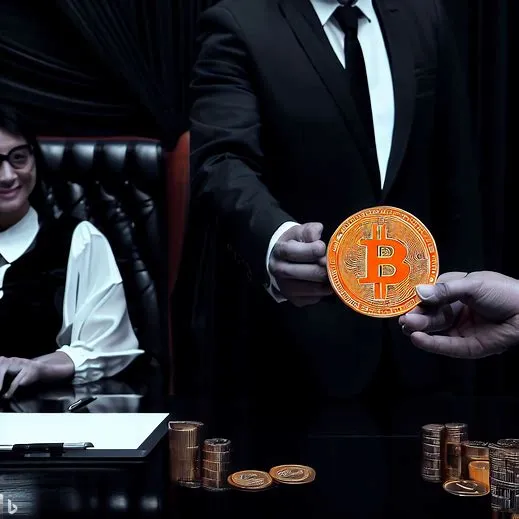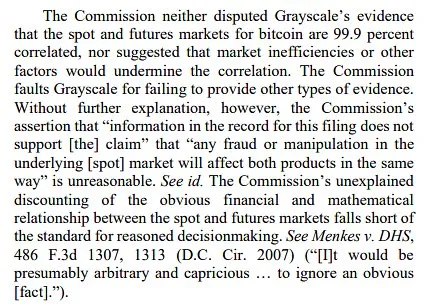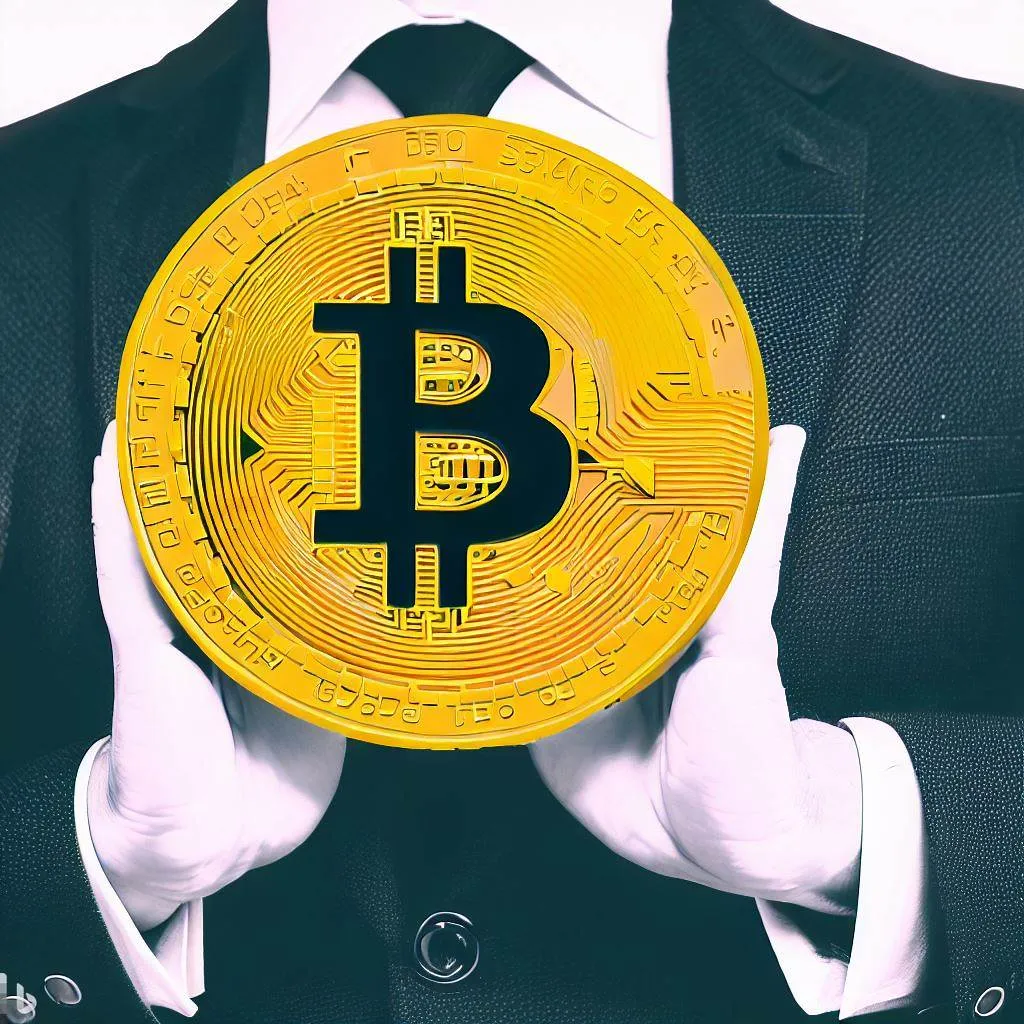Hi guys. In a most recent news, the Securities and Exchange Commission (SEC) lost a case against Grayscale Investments, one of the leading digital currency asset managers. The winning argument was a compelling one: If the SEC has approved Bitcoin (BTC) ETF Futures, it has no ground to deny Spot BTC ETFs.
This legal win for Grayscale raises an essential question: What exactly is the difference between BTC ETF Spot and BTC ETF Futures and why does this win matter? Let's dive in.

What is an ETF?
First, let's establish what an ETF (Exchange-Traded Fund) is for those who might be new to the term. An ETF is an investment fund traded on stock exchanges, much like stocks. It holds assets such as stocks, bonds, or commodities, and the ETF’s price moves in correlation with its underlying assets.
Spot ETF
So going by this understanding, a Spot BTC ETF directly holds Bitcoin as the asset it tracks. The ETF's price is set according to the current market price of Bitcoin. Transactions are settled "on the spot," meaning they are executed and settled immediately. Investors in a spot BTC ETF technically own a portion of the underlying Bitcoin, albeit indirectly through the fund.
Futures ETF
On the flip side, a Futures BTC ETF tracks futures contracts of Bitcoin rather than holding the cryptocurrency itself. The ETF's price is based on the expected future price of Bitcoin, as determined by the futures contracts it holds. Futures contracts have a specified settlement date in the future, hence the name.
Investors in a futures BTC ETF do not own the actual Bitcoin; they own contracts that represent claims to the cryptocurrency.
Simple Differences
Risk
Imagine both ETF as a basket where spot ETF basket holds real BTC and futures ETF basket holds paper contract of BTC. The basket with paper (Futures) is generally riskier. You're betting on what Bitcoin will be worth later, not what it's worth now.
Cost
The basket with notes (Futures) usually costs more in fees. This is because someone has to keep track of all those promises to buy or sell later.
The SECs Double Standard
The SEC's approval of BTC ETF Futures but not Spot BTC ETFs is crazy, especially considering that futures are generally riskier and costlier. Grayscale’s winning argument hinged on this inconsistency: If the SEC is willing to green-light the riskier and more complex Futures ETFs, it should logically also approve the straightforward Spot ETFs no?

Picture this: You walk into a casino and the manager says, "Sorry, no poker—it's too risky." But then you see people in the back room betting on something even riskier, like Russian roulette. This is the dilemma we are facing with the SEC's recent decisions on Bitcoin ETFs.
What about the money you lose with higher fees in futures ETFs. Imagine scraping the cream off your coffee again and again—that’s what these fees do to your investment returns over time. The SEC is okay with you losing that cream, but won't let you invest in the more cost-effective spot BTC ETFs. It's like allowing a luxury tax but balking at a sales tax.
The commission argues that spot markets are susceptible to fraud and manipulation, but guess what? Futures markets are no saints either! The puzzling part is why the SEC turns a blind eye to one but not the other.
This double standard stinks and this is not the first time or second time the SEC will loose in court especially with regards to regulating crypto industry all in the space of six months, remember Coinbase and Binance lawsuit when the SEC failed to clarify what constitutes a security?
Now the question arises, is the SEC really fit to do this job? Has the world of fintech grown past what the SEC can handle?
So what comes next for the SEC?
After this legal setback, the SEC has 45 days to appeal the court's decision. They can file for an "en banc hearing," which is legal jargon for a re-hearing of the case. But this isn't just any re-hearing: the case would be considered by all 17 judges on the court, as opposed to the three-judge panel that initially heard the case.

Why does this matter? An en banc hearing is typically a rare, last-ditch effort for a losing party to overturn a decision, and it can be quite time-consuming. The process is exhaustive, often delving deeper into the legal complexities of the case. With 17 judges on the bench, the hearing promises a comprehensive review and could lead to a different outcome.
However, if the SEC loses again, it could be a significant blow to their regulatory stance on cryptocurrencies, forcing them to re-evaluate their existing policies.
The SEC might have to go back to the drawing board. Grayscale's victory could force a reevaluation of existing policies, especially if other companies leverage similar legal arguments. We might see the SEC adopt a more consistent and well-reasoned approach to both futures and spot Bitcoin ETFs.
And don't underestimate the ripple effect. The U.S. often serves as a regulatory trendsetter. If the SEC changes its tune, other countries may follow suit, leading to more widespread adoption of Bitcoin and crypto assets.
Conclusion
As we await the SEC's next move, one thing is clear: The world of fintech may have outgrown the SEC's current regulatory framework. Whether the SEC can adapt quickly enough to remain a relevant and effective governing body is a question that will be answered in the coming months, and the answer will undoubtedly have lasting implications for investors worldwide.
Thanks for reading.